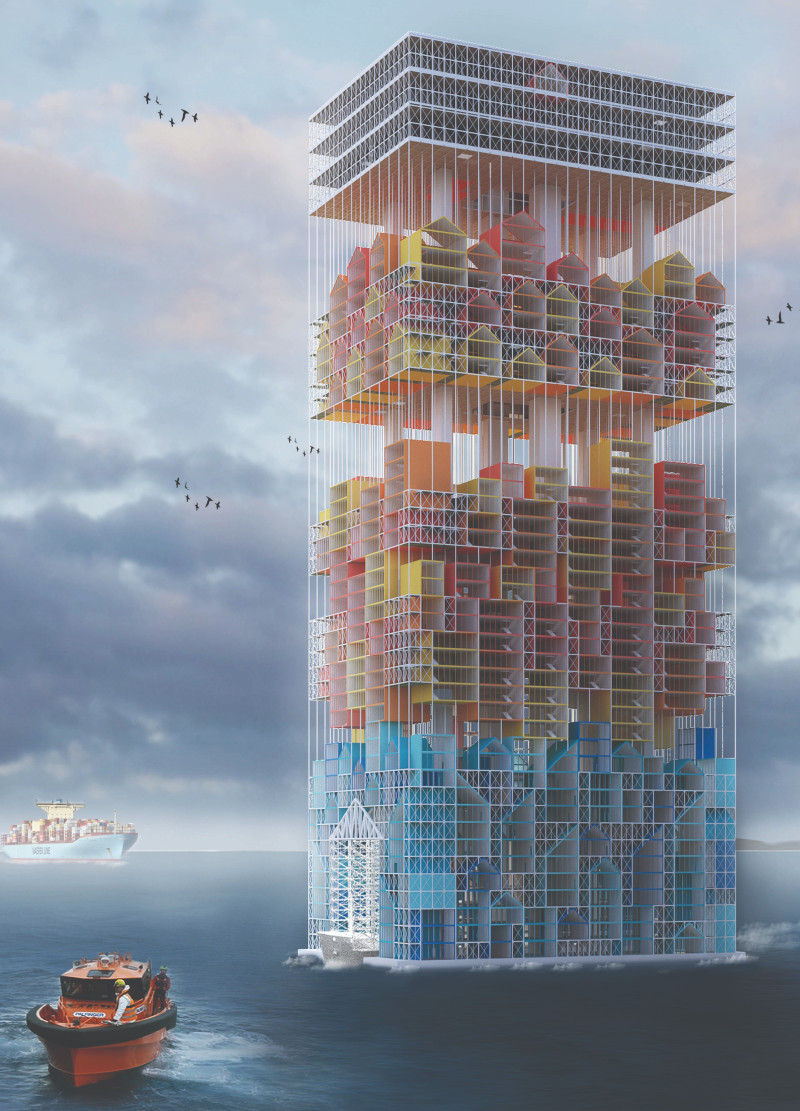5 key facts about this project
Co-Op Ocean introduces a sustainable community situated on the ocean, aiming to address the challenges of rising sea levels and the scarcity of habitable land. The design focuses on adaptive, modular living, where residential and commercial areas coexist in a cohesive setting. By repurposing existing cargo ships as foundational platforms, the project utilizes available maritime resources to create functional living spaces that prioritize community interaction.
Community Integration
The layout of Co-Op Ocean is thoughtfully organized to encourage social connections among residents. Living spaces are located alongside areas for commercial activities, promoting collaboration and exchange. Open gaps within the design allow natural light and fresh air to flow into communal areas, which serve as inviting spaces for gathering and interaction. This arrangement fosters a sense of belonging and community among those who live and work in the environment.
Sustainable Resource Management
Access to food and water is a key consideration in the design. Residents are encouraged to participate in aquaculture and fishing, directly sourcing their food from the surrounding waters. A seawater filtration system provides a means to meet the community’s water needs, complemented by rainwater collection systems that enhance self-sufficiency. The emphasis on managing these essential resources reflects a commitment to sustainability and resilience in a changing world.
Structural Innovation
The structural framework is based on a closely arranged grid that supports the weight of the community while also providing stability against environmental forces. Exterior bracing is utilized to fortify the structure against wind and other challenges associated with living on the water. This approach balances practical considerations with a clear understanding of the unique demands of maritime living, contributing to a safe and enduring environment.
Co-Op Ocean presents an engaging living experience where residents are actively connected to their maritime surroundings. The design allows for easy movement while embracing the distinct possibilities of life at sea, creating a vibrant community that adapts to the ocean's rhythms.


























